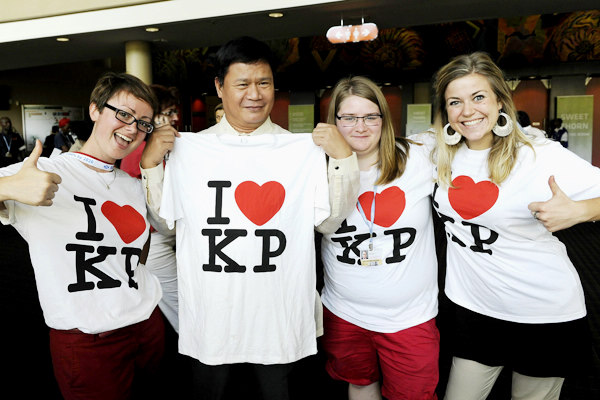
China is willing to shoulder responsibilities in line with its development mode and capability as long as the legal framework after 2020 will comply with the principles of 'common but differentiated r
Representatives from nearly 200 countries and regions have gathered in Durban, South Africa, for the 17th session of the Conference of the Parties to the United Nations Framework Convention on Climate Change (UNFCCC) and the 7th session of the Meeting of the Parties to the Kyoto Protocol. The meeting is the follow-up conference to tackling global climate change after the Copenhagen conference in 2009 and Cancun conference in 2010. Once again, developed and developing countries met for another round on the political battlefield on how to share responsibilities and obligations for the task.
Compared with the two previous conferences, Durban has its special significance. As a continuation of negotiations of contracting parties to the UNFCCC and the Kyoto Protocol, the Durban conference aims at solving problems that have lingered on after Copenhagen and Cancun, while also trying to determine whether the second commitment period of the Kyoto Protocol will start on schedule. It's bound to have an impact on the future development of how to tackle global climate change.
After going through hundreds of years of development, most developed countries have completed their process of industrialization and urbanization. Over that time, the carbon dioxide emitted by those countries has accounted for the major part of overall emissions amount. Greenhouse gases emitted by developed countries account for 80 percent of the total amount. Therefore, developed countries, such as those in the EU and the United States, should shoulder major responsibilities and obligations in carbon emission reduction and give capital and technical support to developing countries.
Although without the heavy historical burden, developing countries should also make their contributions to improving the world's environment. China, which is still in the middle of its industrialization, and only accounts for part of the remaining 20 percent of the greenhouse gases on Earth; its per-capita carbon emission is only one third or even one fifth of developed countries.
China has always adopted a positive attitude toward climate change. The Chinese Government announced its 10-year blueprint for reducing greenhouse gases in 2009: By 2020, the carbon intensity of China's GDP will be reduced by 40-45%. The country also put this restrictive index into its long-term development plan for national economy and social development, which was approved by its top legislature, the National People's Congress, and therefore has legal binding force.
While making the pledge, China has already seen considerable results in emission reduction. By the first half year of 2011, the carbon intensity of the GDP had been reduced by 13 percent, compared with the number in 2005, and the reduction in carbon emission reached more than 1.5 billion tons. Last year, China exported 25 million tons of steel products, 14 million tons of coke and many engineering goods, containing considerable amounts of energy consumption and greenhouse gases emission. Those products have increased China's carbon dioxide emissions while reducing it for those import countries.
As was declared by the Chinese delegation in Durban on December 4, China will be included in the framework convention that will have legal binding force after 2020, and has laid down five conditions, one of them being that as long as the principle of "common but differentiated responsibilities" is carried out, China is willing to shoulder responsibilities and obligations in accordance with its own development period and level. This action once again shows China's positive attitude and sincere demeanor. Just as Xie Zhenhua, head of the Chinese delegation, said, China is willing to continue making efforts with all other countries in the world.

Copyright ©1999-2011 Chinanews.com. All rights reserved.
Reproduction in whole or in part without permission is prohibited.